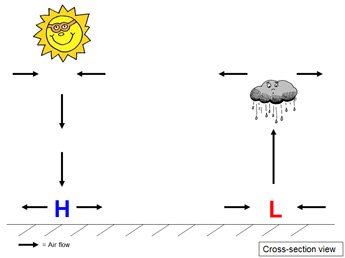Competition and Cooperation, Winning and Losing

Don’t you like to win? I do. There’s something about winning that makes us feel good. While losing can tend to make us not feel good.
We can play a game and experience wins or losses. The potential to win is attractive. If we could only lose in a game, no one would play that game, because it’s no fun to always lose and never have the potential to win. Being able to win means there is a challenge.
Accomplishing a goal, achieving an objective, overcoming a challenge, is rewarding. Trying to win or succeed often motivates us past our losses or failures in order to try again. If you can’t win or the deck is stacked against you, you don’t have a high likelihood of ever winning. It’s no fun to play when the game is rigged or cheating takes place.
In a game, we are competing with others to win, or competing against the game system to win through completing a challenge. Competition is fun in games. Losing isn’t as fun. Playing a game is fun anyways, win or lose, as there is a the challenge to win. When we play a board game, we might lose, but playing the game was still fun. The game itself is usually fun, and the prospect of winning is also driving us along. We like to compete with others, and we both enjoy ourselves, usually.
As long as our survival isn’t depending on it, competition is enjoyable. When our very survival comes into play, then it’s a serious game where the losses are hitting us really hard. If we can’t get food to survive, we die. Competition for survival can sap out any of the enjoyment or fun in competing, as it’s no longer a competition for fun.
There’s a lot in life that involves winning or losing. Sometimes we win, and sometimes we lose. Competition is a widespread component in the world. But so is cooperation. Air pressure systems are battling high and low to form winds and bring in weather changes. If there was no low and high pressure competition, the environment would be pretty stagnant. The high and low pressure is then also cooperating to bring a dynamic and more sustainable environment.In pure biological terms without any psychological dimension, there is cooperation within an organism. Our cells are working together for the larger whole. But there is also competition, such as microorganisms the are beneficial for our health and those that are detrimental. They feed off of what we consume as a resource for their existence, an this helps either grow. Our cells collect recourses as well, and if we aren’t eating right or healthy, then there can be a lack of resources to go around, with some cells winning and some losing in their survival.
Organisms as a whole also compete against other organisms. Plants are collecting resources from the environment, and when there is a lack of resources, they compete for those as well. This is a biological drive. Some plants are antagonistic with respect to each other, but some mutually beneficial. Plants also have chemicals that get produced, sometimes in response to external stimulus such as a threat or drought, that can be sent out through their root system to microorganisms and the mycelium in the soil for a larger cooperating ecosystem. Resource sharing happens at a biological level within and between different organisms.
Animals have a biological drive as well, but also psychological drives. We compete in many ways. Humans seems to be the best at competing, finding innovative ways to win out over other species. The complex world we have developed is the result of competition, and cooperation. We compete for resources and our survival, but also cooperate as a larger species.
Our lives aren’t only about competition, but also cooperation for our own and other’s benefit. We aren’t purely competing in society. We engage in competition within our own niches for survival and living. An accountant will compete with other accountants to get clients. But they have also cooperated to develop better accounting practices over history. Our whole society competes, but also cooperates and shares in different tasks to get more things done.
Competition and cooperation is a dynamic that pervades many areas of the world. Winning and losing is present in many places as well. We compete to try to win, and some people win while some people lose. But we also cooperate for win-win relationships as well. Competition doesn’t need to be ruthless. But those who do things well, win or succeed more. One accountant that does a better job than another will have more success, as they perform better.
Another occupation might be measured on performance of doing a job better, but money might be involved as well. If you can make money more, you are seen winning and being more successful. But simply making money a real measure of success? Sometimes it can accurately reflect how better someone is at their skillset, compared to others, but not always. Some people make more money because they have connections, they network and gain favors, their friends favor them, despite having a lower quality output or being less good at doing something compared to others.
Human society has this strong social factor. The merits of what you do aren’t the only thing that represents you. Subjective evaluations of your personality, having connections and reciprocating favors, also plays a part in people wining or succeeding in life. Competition in society isn’t always about how well you do something. It’s about influencing others to think you do something better, or just to simply favor you because of your mutually subjective connection and favorable evaluation of each other as a person.
The objective performance is often secondary to subjective evaluations of a person. Within companies and society, it’s not always the best performing or most skilled that gets ahead, but the one who can grease the social wheels and be able to influence the psychological dimension of others. Fair competition is rigged in this way. It’s not about who does what better, but who is more liked and favored.
This can be seen in competition for contracts, either in the private sector or government sector. The better company won’t win if another is more favored to be given a contract. The same happens when hiring someone for a job, or having someone promoted. The best person might be passed over in favor of a friend, someone that has connections and is networked more with others.
Steem works similarly. It’s not who has the best content, the best product or done the best work that wins out, although that does factor in partially. It’s largely about who has connections, who is networked with others, who has influenced and gained favorability in order to receive support, to succeed and win.
It’s a social content platform, and the social wins out over the content in many cases. We want to win the game and competition for resources (attention and rewards). If you don’t have connections and networking with others, then the work you do doesn’t often matter much. Winning and succeeding in the content game is rigged, like in real life. Social connections to those with Steem Power determine a lot of what happens, unless you’re buying votes from those with Steem Power. Winning and succeeding by your own work paving the way to merit rewards and attention is harder and harder to do.
It takes time to build connections. That can be done through others valuing your work to rewards you. But if you have connection and influence, people can favor your content even if it’s not good. If you support someone, then they tend to support you, often despite the content being the best or any good at all. Favor for favor.
How has your experience on Steem been? Have you gained attention and rewards by the merits of your work, product or content in itself? Or did you only gain traction when you networked, connected and gained influence and favor with others?
Also, are we working to benefit ourselves and others through what’s best for the platform in the long-term? Or are we just looking to win as much as we can for ourselves in the short-term, regardless of what it does to the long-term success or failure of the platform?



